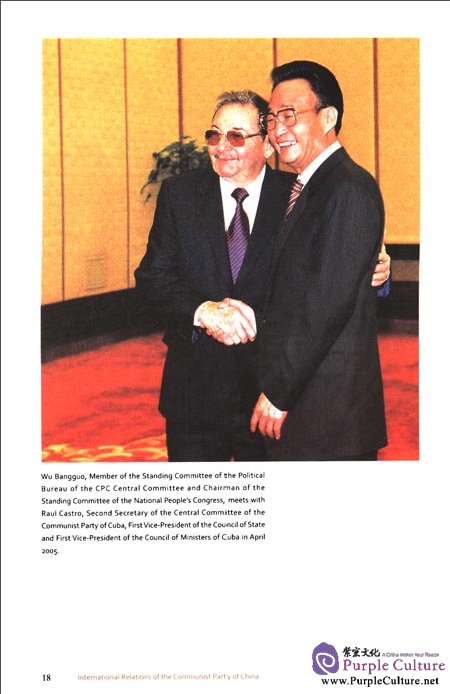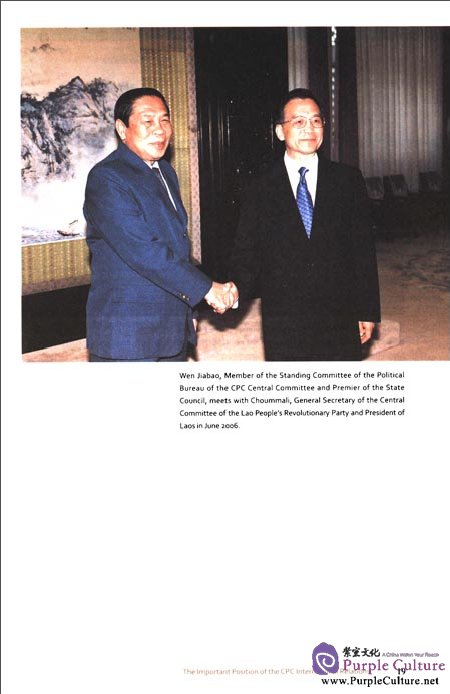Sample Pages Preview


While implementing the policy, the CPC never deviated from its principle of independence and self-determination. "Siding firmly with the SovietUnion," Mao Zedong emphasized repeatedly, "didn't mean to copy blindly their experience; the policy had to be conducted on the basis of equality,independence and self-determination, both in our foreign diplomacy and construction." When attending the conference of Communist and workers'parties held in Moscow in 1957, Mao Zedong exchanged his ideas with topleaders of other parties and countries about the in dependent status and the rightof self-determination each party was entitled to. Every party should be entirely independent and no party should interfere with another party's internal affairs.With the efforts of Mao Zedong and others, this principle was written into the"Moscow Declaration." During his meeting with Ho Chi Minh, Chairman ofthe Communist Party of Vietnam, Mao Zedong said, "No state or party, big or small, should force its idea on others without discussion. Forcing one's idea on others is an unpleasant practice."
2. All parties are equal. During the early years of the PRC, the CPC and the Soviet Union Communist Party maintained very good relations. However,due to the latter's dominant attitude, and its interference with other country'sor party's internal affairs, beginning from mid 1950s, the CPC acted firmly against its practices. After the Poland Incident by the Soviet Union's interference that happened in 1956, the incident out of the Soviet Russia's interference in Poland's internal affairs, Mao Zedong pointed out, "the Poland-Soviet Union relationship is not a father-son kind but the relations between two countries and two Communist parties. Therefore, they should be equal." In December 1956,in an article titled "More on the Historical Experience of the Dictatorship of the Proletariat," Mao Zedong reiterated the equal basis of all Communist parties should enjoy. With equality, he said, unity would be consolidated; without it.

